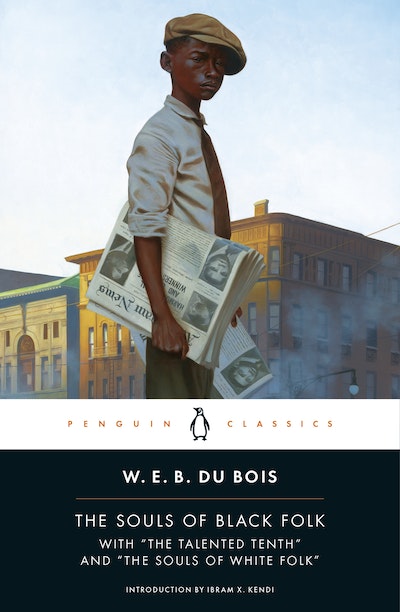[]
- Published: 26 September 1996
- ISBN: 9780140189988
- Imprint: Penguin Classics
- Format: Paperback
- Pages: 288
- RRP: $29.99
The Souls of Black Folk
With "The Talented Tenth" and "The Souls of White Folk"
Buy from…
- Published: 26 September 1996
- ISBN: 9780140189988
- Imprint: Penguin Classics
- Format: Paperback
- Pages: 288
- RRP: $29.99
“[The Souls of Black Folk is] the foundation on which Du Bois built a lifetime of ideas, and on which the black and antiracist intelligentsia continues to build today. . . . In 1903 . . . black newspapers . . . typically shouted in unison, ‘SHOULD BE READ AND STUDIED BY EVERY PERSON, WHITE AND BLACK.’ . . . And today it still SHOULD BE READ AND STUDIED BY EVERY PERSON.” —Ibram X. Kendi, from the Introduction “A work that is still relevant today . . . Vividly depict[s] what it was like to be black . . . Many of the ideas that Du Bois outlined in the book still endure. . . . [A book] for anyone who wants to understand America.” —Lynn Neary, NPR’s Morning Edition

